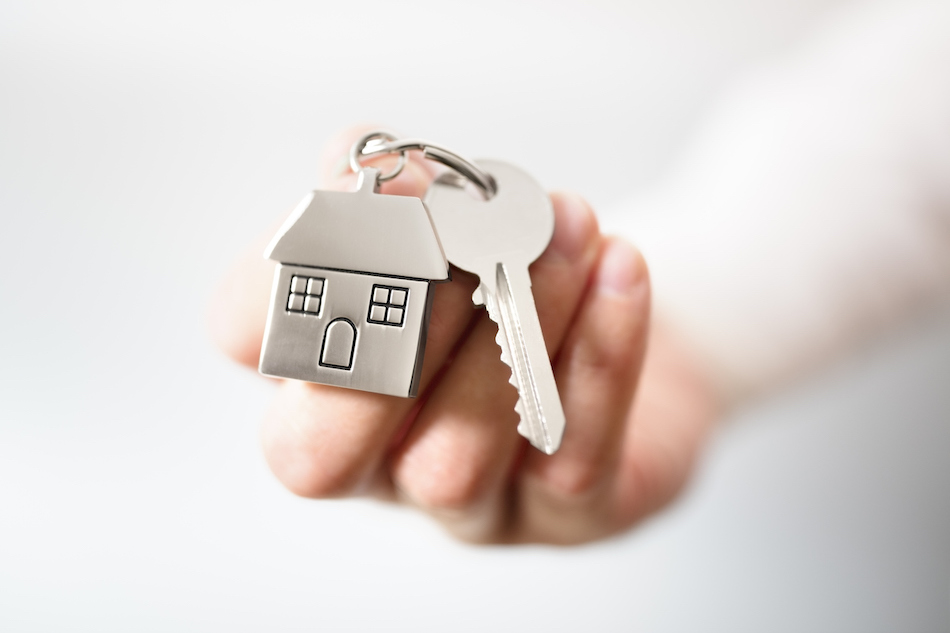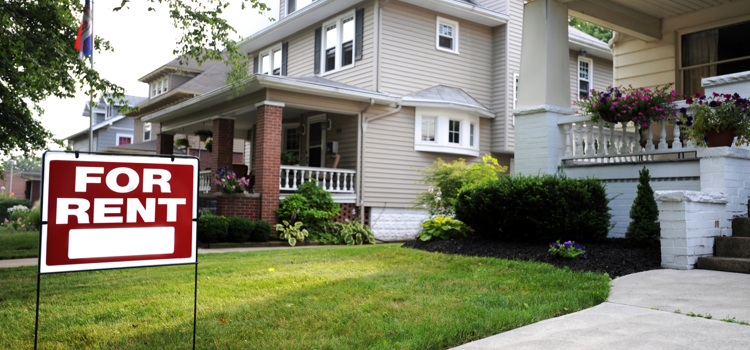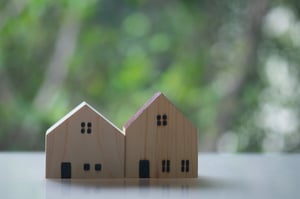As billionaire hedge fund manager John Paulson has said, “I still think buying a home is the best investment any individual can make.”
The challenge is that for many people today, home prices are reaching all-time highs in the cities where they work and live. So, rather than buy a home to live in, many are considering buying an investment property in markets that are more affordable.
But is buying an investment property before a primary residence really the right decision?
In this article, we’ll discuss reasons why people buy an investment property first, potential drawbacks to consider, and tips for buying a rental property.
Key takeaways
- Purchasing an investment property instead of a primary residence may be the right choice for some people.
- People who live in cities where housing prices are high sometimes decide it makes more financial sense to purchase rental property in smaller cities.
- Investment property provides the possibility of monthly income, appreciation in property value over the long term, and tax benefits.
- Potential drawbacks to owning investment property include the risk of negative cash flow and dealing with difficult tenants.
Why buy a rental property first?
Although every buyer and investor is different, here are 5 reasons why people may choose to buy a rental property before buying their own primary residence.
1. Housing prices are too high where they live
Even though working from home is becoming part of the new normal, many employees still need to live near their workplace.
People who live in places where housing prices are high are finding it increasingly difficult to buy a home of their own, even when they are in the upper income brackets. For example, according to Zillow, the typical value of a middle price tier home in San Jose is more than $1.3 million (as of August 2021).
Online investing platforms like Roofstock make it easy for people to remotely invest in real estate outside of their home market.
Instead of coming up with a 20% down payment of $260,000 for a home in San Jose, would-be homeowners can invest in rental property in Columbia, South Carolina where a middle price tier home costs less than $180,000.
2. Interest rates are at historic lows
Interest rates to buy investment property generally run between 0.50% and 0.875% more than mortgage rates for a primary residence.
As LendingTree explains, buyers can get a lower investment property mortgage rate by having a good credit score, putting down more than 20%, maintaining a debt-to-income (DTI) ratio of 43% or less, and boosting cash reserves to have at least six months of money on hand to pay the mortgage on a rental property in between renters.
Even though interest rates on an investment property are slightly higher, the nice thing about renting a home out is that rental income from the tenant can be used to pay for the monthly mortgage and the costs of owning and operating a home for rent.
3. Investment properties can make money
Robert Kiyosaki, author of the best-selling book Rich Dad Poor Dad, once said that, “Assets put money in your pocket, whether you work or not, and liabilities take money from your pocket.”
A primary residence not only doesn’t generate income like an investment property does, it also incurs liabilities such as maintenance and repair costs . To illustrate, let’s look at a simple cash flow statement for a single-family rental property worth $150,000:
Gross Income
- Rental income: $14,000
- Pet rent: $500
Total Gross Income: $14,500
Operating Expenses
- Property management: $1,100
- HOA fee: $400
- Insurance: $900
- Repairs and maintenance: $600
- Property taxes: $1,500
Total Operating Expenses: $4,500
Net Operating Income: $10,000
- Mortgage interest payment: $4,250
- Mortgage principal payment: $2,250
Cash Flow: $3,500
Based on this example above, the investment property generates a positive cash flow of $3,500 per year. On the other hand, if the home shown above was purchased as a primary residence, the cost of owning the home would run $9,900 per year, excluding the property management fee.
Of course, cash flow from a rental property will vary from one year to the next, and can even be negative during the time it takes to find a new tenant. That’s why many real estate investors create a cash reserve account to have funds available to pay for expenses when there is no rental income.
4. Rental properties provide more tax benefits
People who buy an investment property before a first home may earn income, equity from appreciating home values over the long-term, and also enjoy the tax benefits of owning rental property.
In addition to being able to deduct all of the operating expenses from rental income, investors can also deduct owner expenses such as traveling to visit a rental property, continuing education like coaching and lectures from the Roofstock Academy, and dues paid to a real estate investing club.
Another significant tax benefit of owning investment property is the depreciation expense that is used to reduce taxable net income. The IRS allows investors to depreciate residential investment property over a period of 27.5 years to compensate owners for the property wearing out over time.
To calculate depreciation on a rental home, the value of the land or lot is deducted from the home, and the remainder is divided by 27.5 years. In the example above, if the lot value was $10,000 the depreciation expense would be $5,091 per year:
- $150,000 home value - $10,000 lot value = $140,000 cost basis for depreciation
- $140,000 cost basis / 27.5 years = $5,091 annual depreciation expense
A real estate investor then uses the annual depreciation expense to reduce taxable net income:
- Net operating income $10,000
- Mortgage interest -$4,250 (another tax deductible expense of a rental property)
- Depreciation -$5,091
- Taxable net income $659
So, even though the investment property had a positive cash flow of $3,500 after payment of operating expenses and mortgage costs, an investor would only pay tax on $659 of income due to the tax benefits of owning a rental property.
5. Investing in real estate keeps options open
Another reason why people buy an investment property before a primary residence is for added flexibility. Although some people are attracted to the stability of owning their residence, others don’t like the idea of being stuck in one place and having a mortgage payment every month.
For example, an amazing job opportunity that requires moving across the country is much easier to accept when someone isn’t tied down to home with a monthly mortgage. Buying an investment property instead of a primary residence also gives people the lifestyle flexibility to travel the world and work as a digital nomad while collecting monthly income from a rental property to fund their living and travel expenses.
Drawbacks to buying an investment property first
While there are plenty of reasons why people may choose to invest in real estate instead of buying a primary residence, there are also potential drawbacks to consider as well:
- Cash flow could be negative in some months, due to unexpected repair costs or longer vacancy periods while looking for a qualified tenant.
- Trying to self-manage a rental property may prove more daunting than it seems, especially given the need to fully understand the Fair Housing Act and state landlord-tenant laws.
- Landlords who don’t keep a rental property in good, habitable condition may end up getting sued by the tenant, guest, or vendor for an injury that occurs because of owner negligence.
Tips for buying an investment property
Here are tips for people who decide that it makes more financial sense to buy an investment property to rent out before buying a first home to live in:
- Spend time researching good markets for rental property investing, where job markets are growing and the population is increasing.
- Understand financial performance metrics that real estate investors use, such as cash flow, net operating income, cash-on-cash return, gross yield, and appreciation.
- Reduce personal debt by paying off credit cards and paying down student loans.
- Save money for a down payment, such as raising money from friends and family or tapping into an IRA.
- Shop around for your first investment property loan by speaking with local lenders and visiting the Stessa Mortgage Center.
- Always plan for the unexpected, such as major repairs or longer than normal vacancy periods.
- Prepare to be a landlord or hire a good property management company.
Wrapping up
Before buying an investment property instead of a first home, people must decide if the potential rewards outweigh the risks.
While owning a rental property instead of a primary residence may provide significant benefits such as monthly income and tax deductions, tenants can be difficult to deal with and rental property does not always generate positive cash flow.
By taking the time to research real estate markets across the country where home prices are more affordable and the demand for good rental property is strong, people may find that it makes more financial sense to invest instead of own a primary residence.










